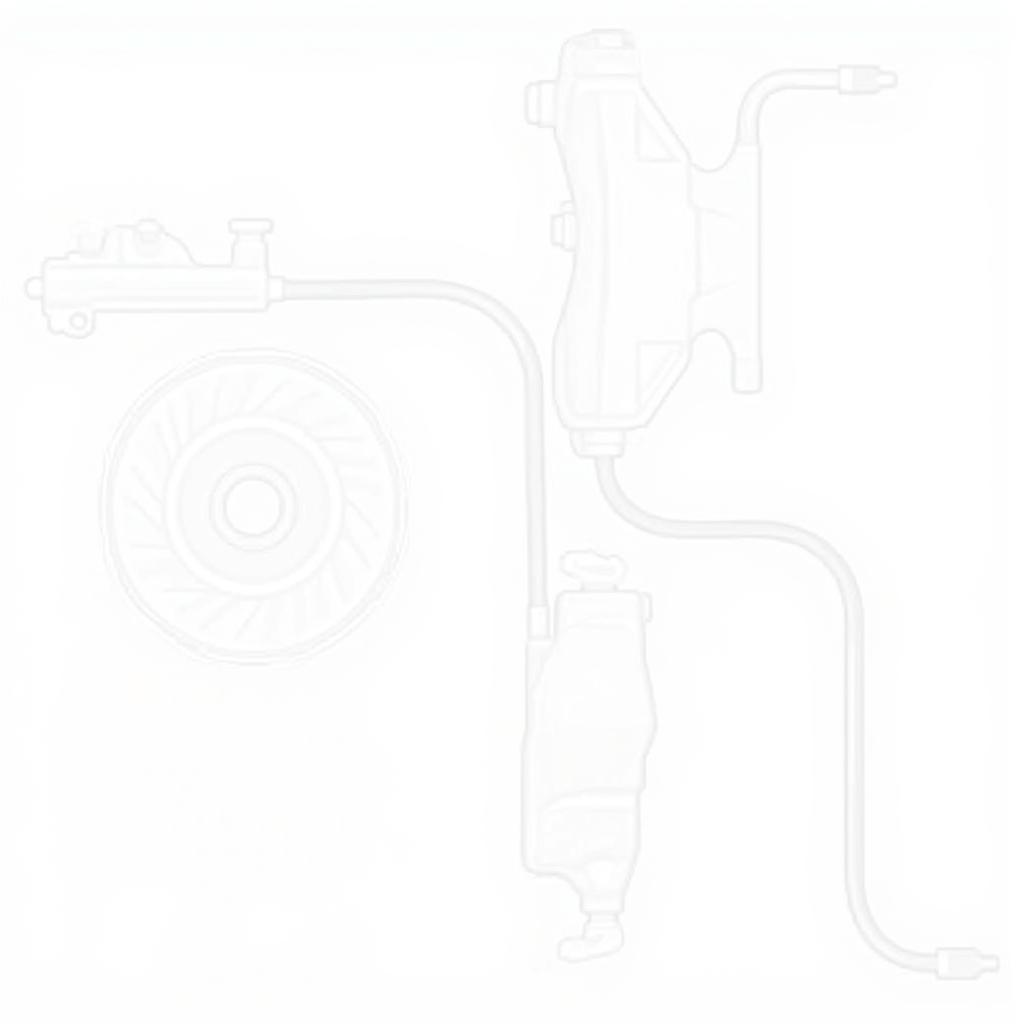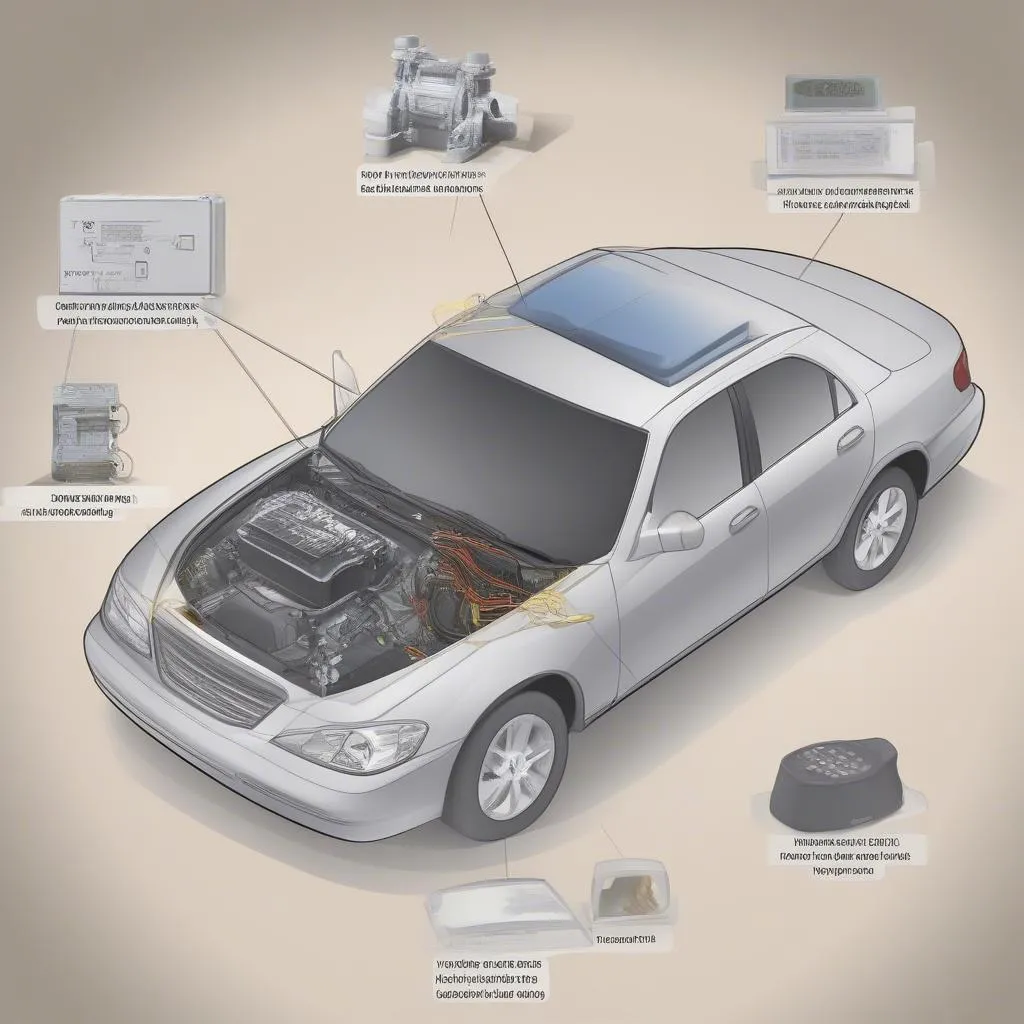The brake warning light on your Volkswagen dashboard is a crucial safety feature, designed to alert you to potential problems within your braking system. While it’s normal for the light to illuminate briefly when you start your car, a brake warning light that stays on constantly indicates an issue requiring immediate attention. This article delves into the common reasons behind a persistent brake warning light in Volkswagen vehicles and explores possible solutions to get you back on the road safely.
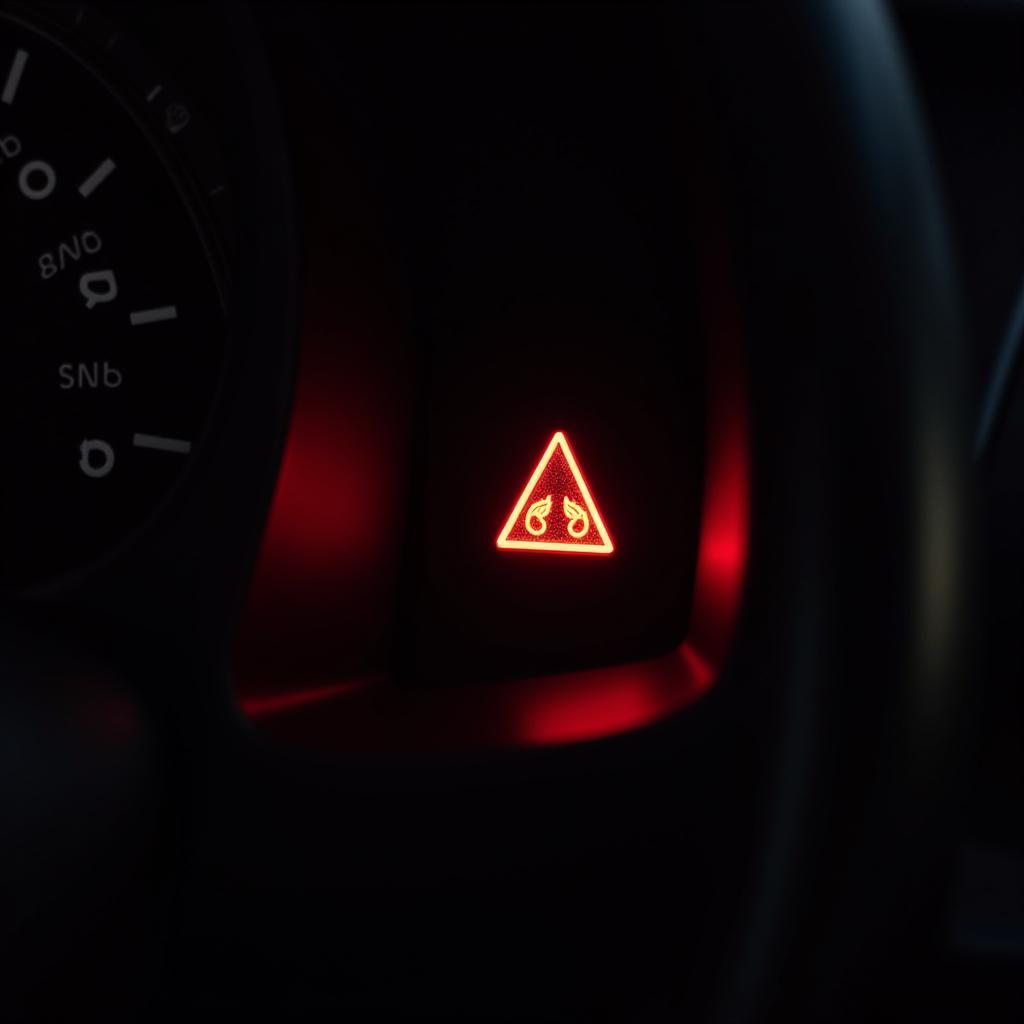 Volkswagen Dashboard with Brake Warning Light
Volkswagen Dashboard with Brake Warning Light
Understanding Your Volkswagen’s Brake System
Before diving into the potential causes of a persistent brake warning light, it’s helpful to have a basic understanding of your Volkswagen’s brake system. Modern Volkswagens are equipped with sophisticated braking systems comprising various components that work together to ensure safe and efficient stopping power. These components include:
- Brake Fluid: This hydraulic fluid transmits the force from your foot on the brake pedal to the brake calipers at each wheel.
- Master Cylinder: This crucial component pressurizes the brake fluid when you apply the brakes.
- Brake Lines: These metal lines carry the pressurized brake fluid from the master cylinder to the wheels.
- Brake Calipers: The calipers house the brake pads and pistons, which clamp the brake pads against the rotors to slow or stop the vehicle.
- Brake Pads and Rotors: The brake pads are forced against the rotors by the calipers, creating friction that slows the wheels.
A fault in any of these components can trigger the brake warning light on your dashboard.
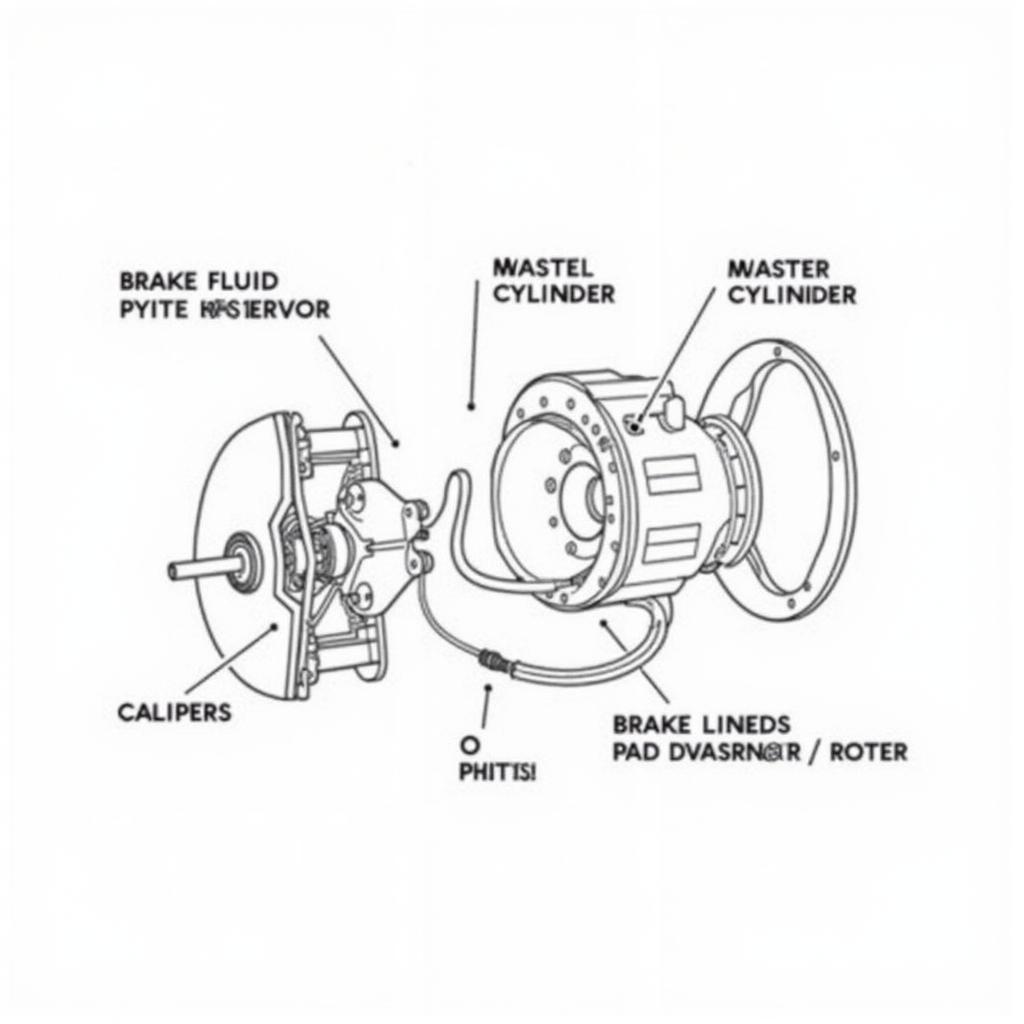 Components of a Volkswagen Brake System
Components of a Volkswagen Brake System
Common Causes of a Volkswagen Brake Warning Light
1. Low Brake Fluid Level:
One of the most common reasons for the brake warning light to stay on is a low brake fluid level. This often indicates a leak in the braking system, which can be caused by worn brake hoses, faulty seals in the master cylinder, or a leaking caliper.
What to do: Check your brake fluid level immediately. If it’s low, adding brake fluid might temporarily address the issue, but it’s crucial to have your braking system inspected by a qualified mechanic to identify and repair the leak.
2. Worn Brake Pads:
Volkswagen vehicles are equipped with brake pad wear sensors that trigger the warning light when the pads reach a certain level of wear.
What to do: If you suspect worn brake pads, it’s crucial to have them inspected and replaced by a qualified mechanic as soon as possible. Driving with worn brake pads can significantly reduce braking efficiency and may lead to costly damage to your rotors.
3. Faulty Brake Pad Sensor:
While less common, a malfunctioning brake pad wear sensor can also trigger the warning light even if the brake pads are still in good condition.
What to do: A mechanic can test the sensor and replace it if necessary.
4. Issues with the ABS System:
Modern Volkswagen vehicles have Anti-lock Braking Systems (ABS), a safety feature that prevents wheel lockup during hard braking. The ABS system has its own control module, sensors, and pump, and any fault within this system can trigger the brake warning light.
What to do: If you suspect an issue with your ABS, it’s best to have your vehicle scanned for diagnostic trouble codes by a qualified technician who can diagnose and repair the problem.
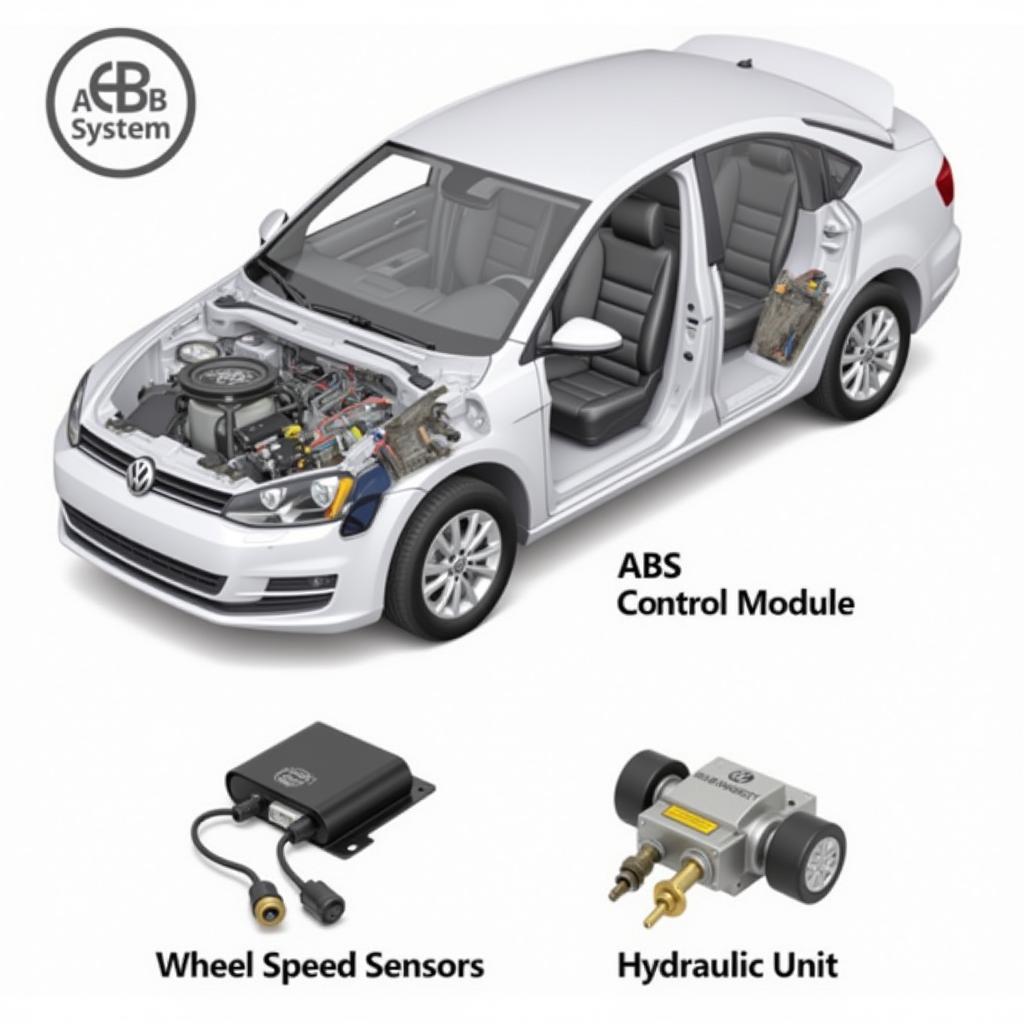 Volkswagen ABS System Illustration
Volkswagen ABS System Illustration
5. Other Potential Causes:
While less frequent, other potential causes for a persistent brake warning light include:
- Faulty brake light switch
- Issues with the electronic parking brake
- Problems with the brake booster
These issues typically require diagnosis and repair by a qualified mechanic.
What to Do When Your Volkswagen Brake Warning Light Stays On
- Don’t Panic: While a glowing brake warning light signals a potential problem, it’s crucial to remain calm and assess the situation.
- Safely Pull Over: If possible, find a safe location to pull over and assess the situation.
- Check Your Brake Fluid: Carefully inspect your brake fluid level. If it’s low, adding brake fluid might temporarily alleviate the issue, but remember to address the underlying leak.
- Inspect Your Brake Pads: If possible, visually inspect your brake pads for excessive wear.
- Seek Professional Help: If you’re unable to diagnose the problem yourself or if the brake warning light persists, it’s crucial to seek professional help from a qualified Volkswagen mechanic or dealership.
Remote Diagnostics and Software Solutions
Advancements in automotive technology have paved the way for remote diagnostics and software solutions that can help diagnose and address certain brake system issues in Volkswagen vehicles.
2011 vw cc brake warning light stays on
volkswagen brake fault warning
These services involve connecting your Volkswagen to specialized diagnostic equipment that can read trouble codes, analyze system data, and even perform software updates or reprogramming remotely. While not all brake problems can be solved remotely, this technology offers a convenient and efficient way to diagnose and address certain issues without visiting a mechanic in person.
Conclusion
A persistent brake warning light in your Volkswagen is a clear indication that something is amiss with your braking system. Ignoring this warning sign can compromise your safety and lead to more extensive and costly repairs down the line. Addressing the issue promptly ensures your Volkswagen remains safe and reliable for miles to come. If you’re experiencing issues with your Volkswagen’s braking system, don’t hesitate to contact a qualified mechanic for diagnosis and repair.

